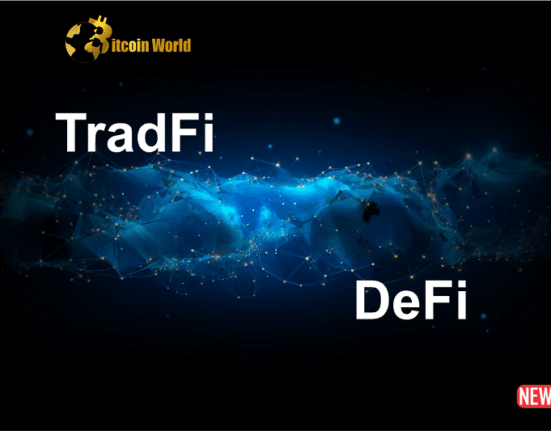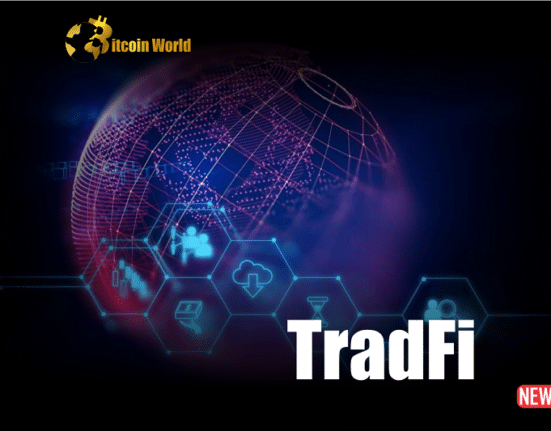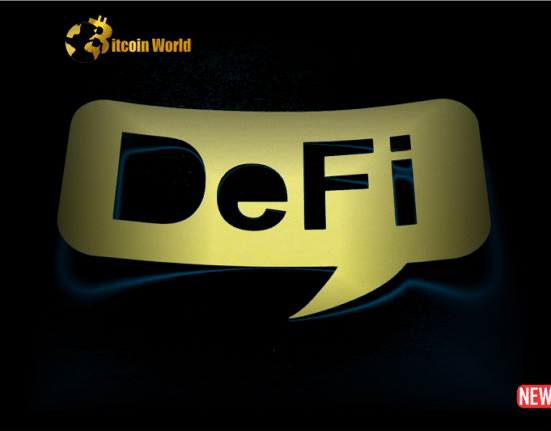In a world where banks have become the norm for many of us and financial institutions seem inescapable, one industry dared to challenge the hegemony of traditional finance- crypto.
Today, decentralised finance, or DeFi, is a fast-growing arm of the crypto space, and many of the promises that DeFi made are now becoming goals for the traditional finance space as well. Yet, few would say that traditional finance has been overshadowed or taken a back seat- after all, we still have bank accounts and debit cards tied to our bank accounts.
So how much has the rise of DeFi actually impacted the world of finance?
This Wednesday, at the World Blockchain Summit, held at Marina Bay Sands in Singapore, several prominent executives from the financial world gave their thoughts on how much DeFi would actually impact the world of traditional finance.
The session was moderated by Max Carmichail Jack, Co-founder of Elixir Digital, and panellists included Amie L, Co-founder and partner at Yuzu Venture, Rafik Fellal, Vice-President of Growth at Mimo, as well as Sagar Desai, Institutional Sales, Trading, and Prime (APAC) at Coinbase.
Trad-fi isnt just copying DeFi, Tradfi needs DeFi
In recent years, traditional financial institutions have started to experiment with blockchain technology, and some of these experiments have yielded fruit.
At last year’s Singapore Fintech Festival, executives from J.P. Morgan, SBI Digital Asset Holdings, and DBS showcased an example when they tested the trading of government securities and foreign exchange using DeFi tools.
But why the adoption of DeFi tools?
According to Sagar, while traditional finance has developed and improved over the past few years, these changes have only been incremental changes. The advent of blockchain tech, however, has changed things.
“We need DeFi to make things more efficient. Trad-Fi has only made incremental changes over the past few decades, and even then, in Trad-Fi there’s so much bureaucracy that blocks out access for those who want to participate in the ecosystem. If we’re able to abstract that layer out, it would be a big win for everyone.”
-Sagar Desai, Institutional Sales, Trading and Prime (APAC), Coinbase
DeFi isn’t the Trad-fi killer
Those hoping that traditional finance would be completely replaced have likely felt disappointed over the past few years, as traditional finance continued to thrive.
And the panellists believe that it’s not the end of their woes yet. Instead, while DeFi has made progress, it’s not a replacement for Trad-fi, and every part of the ecosystem will have its part to play.
Amie L, co-founder and partner at Yuzu Venture, believes that the sense of community that exists on DeFi can be helpful in getting projects off the ground, but that doesnt necessarily preclude investments from other sources.
“Trad-fi is like a curator- they have huge organisations dedicated to getting through the checks and balances necessary for investments. But DeFi is different. It’s helpful for crowdfunding, but these are not seasoned investors who can build a protocol. DeFi funding can be helpful at the start, but Trad-fi will eventually come in as well.”
-Amie L, Co-founder and partner at Yuzu Ventures
Interestingly, the panellists also noted that there was a natural synergy between CeFi and DeFi.
“CeFi makes it easier to onboard people into crypto and for them to get access to mainstream tokens like Bitcoin and Ethereum. But there’s plenty of other tokens as well, and these tokens are not always listed on CeFi platforms and exchanges. This is where DeFi can step in to help provide liquidity for anyone that wants to trade in altcoins.”
-Sagar Desai, Institutional Sales, Trading and Prime (APAC), Coinbase
Rafik Fellal, VP of growth at Mimo, concurred, saying that while DeFi is the source of the yields that investors like, CeFi helps by getting customers into the Web3 ecosystem, and get them comfortable knowing that there is someone to turn to in the ecosystem.
All in all, each industry has a role to play, and rather than being in competition with each other, there is quite a bit of space for cooperation instead.














